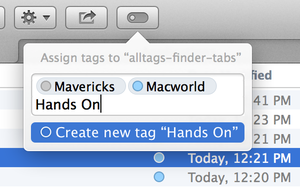PCWorldMacworldTechHive

BUSINESS ISSUES
seo,
Guest blog posts drawing scrutiny from Google

Christopher Null@christophernull
Jul 19, 2013 11:31 AM
When it comes to blogging, the conventional wisdom says that you should get your name and material out there as liberally as possible. Any place you can stuff a backlink to your business’s website is great, particularly if it’s on a noteworthy or popular site. Guest posts have long been thought to be a great way to do that: You get to reach a broader audience and link back to your own website, improving your search engine rankings while sharing your expertise. Meanwhile, the website owner gets free content. It’s win-win.
But that conventional wisdom is changing, as many are questioning whether guest blogging may actually lead to penalties rather than better placement in search results.
For the website owner who’s hosting the guest posts, the problem is relatively easy to see. Because you have limited control over the content of the guest post, you’re taking a leap of faith that you’re going to get quality work. Any links embedded in that post are also potentially troublesome. A guest blogger (who is rarely someone you actually know) may embed what looks like an innocuous link in the post, only to redirect it later to a less than savory site. And if your website links to a spam site—whether you or a guest writer does the linking—you can be subject to Google penalties and see your search ranking plummet.
But what about the writer of the guest blog post? Well, there’s trouble emerging there, too. Posting your good work, name, and link on a questionable site can subject you to the exact same penalties as described above. And once Google starts to associate you with the gray areas of the Web, it can be hard to break that association. In fact, today, Google’s own advice is that if you do write a guest post for another site, you should include “nofollow” tags on your own backlinks in order to avoid penalties.
But wait, isn’t building followable backlinks the whole idea of guest posting? It sure is, and that’s why many are wondering if guest posting is a dying idea. If the guest post is well-written and relevant, and if the site it’s posted to is high-quality and authoritative, then there’s no problem. The trouble is that almost never happens. Either the guest post is low-grade or the site hosting it is. Rarely do both sides of that equation ever add up to anything you’d consider “quality.”
Guest posting can still be done successfully, as long as it’s done sparingly and intelligently. But doing the job right is more important than ever. If you want to host a guest post on your business’s blog—or write one for someone else—follow these key tips.
Guest posts need to be relevant for both sides. If you run an online shoe sales site, you shouldn’t be hosting guest posts about plumbing.
Quality is key. If you can’t ensure top-notch quality of a guest post, don’t accept it.
Check out who you’re dealing with? Good guest posts will come from those with authority on the subject matter they’re writing about. Check their social networking accounts to ensure that they promote material they write, including guest posts on other people’s websites.
Length is still important—300 words is widely considered the “minimum” word count for a webpage to be included in Google’s index.
Limit backlinks, and check them out thoroughly. One relevant backlink to a quality, relevant website, maximum.
WE RECOMMEND

Sponsored
Top 10 Tips for Using Windows 8 With a Keyboard and Mouse
(Tech Page One)

Review: Surface Pro is the world's best Windows tablet, but still can't close the deal

Oculus Rift VR headset prototype works so well it’s a little scary

Deep inside Windows 8.1's hidden new features

11 Uses for an Old PC





LATEST VIDEOS

D5000 Review

Cool hidden features in Windows 8.1

Yahoo earnings up under Marissa Mayer

Military robots conquer air, land without humans
View more PCWorld videos »
FEATURED WHITEPAPERS
The Right Solution to Create, Collaborate, Edit, and Secure PDF Documents
The Key to Improving Your Customer Service: Intelligent Systems
The Essential Guide to Internet Marketing
Learn How to Increase Traffic, Leads and Sales By Reaching More Than 11 milli...
54 Examples of Brilliant Homepage Design
Social CRM: Key Strategies and Must-Have Features
How to Attract Customers With Facebook
Sales Process Map
BI and Big Data: A Dark Territory: A CDW Blog
Mobile Apps Advance Customer Self-Service
Creating a Kick-Ass Marketing Strategy: Find the Right Channels For Your Mess...
Food: A New Approach to Employee Retention
See more whitepapers »
See All Newsletters »
Tune in or tune out: How does Windows 8 stack up on a home theater PC?

Hands-on with OS X Mavericks: Finder tabs and tagging

Nokia is squandering its last best chance for relevance
PCWorld

No comments:
Post a Comment